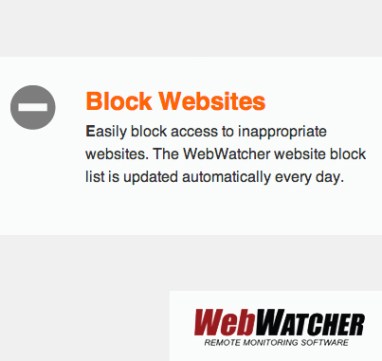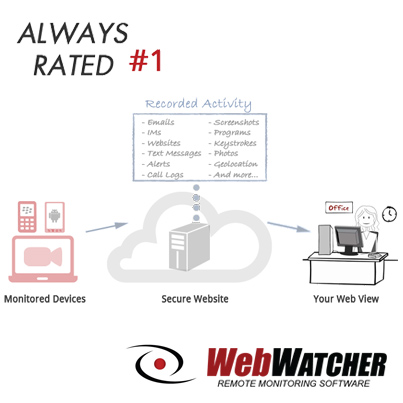Most of the popular social media networks require that users be at least 13 to join. That means that once your child reaches adolescence, there isn’t much to stop them from signing up to spend their time on one of the many social media networks available.
As a parent, of course, you can make your own rules regarding when your child will be allowed to use social media, but many parents find that it’s difficult to enforce a complete ban on social media and that it’s more effective to make rules about how your kids use their social media accounts instead. But even that can come with complications.
For instance, is it OK to spy on your kids’ social media activity to ensure that they’re following the rules and using their social media accounts responsibly? Take a look at some things that you should consider.
The Disadvantages of Spying
On the surface, spying on your child’s social media activity may not sound like a bad idea. You probably aren’t interested in invading your child’s privacy so much as you’re interested in protecting them – both from outsiders who might use social media to hurt them, like online predators or cyberbullies and from their own impulsive choices that may cause trouble for themselves that they hadn’t considered.
And it’s not terribly hard to do. There are a wide variety of parental monitoring apps and software out there, some of which can be installed surreptitiously and remain hidden so that your child doesn’t accidentally find them.
But the fact is, jumping to spying on your teen can backfire on you. It’s worth remembering that most teens are, or will be, more proficient with new technology than their parents are, which means that it’s not impossible that your teen will find even well-hidden spyware.
And even if your teen doesn’t locate the spyware on their own, if you watch their activity closely enough for a long enough period of time, you’re going to eventually see something that you want to address directly with your teen – and that’s going to mean admitting how you saw their activity.
When a child discovers after the fact that their parent has been spying on them, it can damage the trust between parent and child. Your teen may justifiably feel that their privacy and boundaries have been violated. Instead of learning to be more careful about social media, they’ll learn to get better at hiding things from you, and not to trust you to give them any space for private thoughts or conversations with friends.
This can lead to teens acting out, taking extreme steps to hide their online activity, and becoming unwilling to discuss their thoughts or problems with you. In short, spying on your child’s social media activity can cause more problems than it solves.
Why Monitoring is Better Than Spying
So, if spying isn’t the answer, what is? Do you have to just let your child do whatever they want on social media and just hope it all turns out OK? No. The answer is simple. Don’t spy on your child’s social media activity, but do monitor that activity.
What’s the difference? Largely, the answer is transparency. Monitoring isn’t done surreptitiously. You can let your child know that it’s happening. Tell your teen that monitoring is part of the package – you’re providing them with a device and an internet connection and they have permission to create social media pages, but on the condition that they follow your rules, one of which is monitoring.
It’s true that your teen might not be exactly happy to be told that you’ll be monitoring their online activity. But if you’re upfront and honest about it, they’ll at least know that you aren’t going behind their back. And chances are that they’ll be more willing to accept monitoring if they know from the beginning that it’s just part of the deal when it comes to having a device and using social media.
How to Talk About Monitoring With Your Teen

It’s best if you can tell your teen from the start that you’ll be monitoring their social media accounts. But if they already have social media accounts and you’re just now making the decision to monitor them, you can simply tell your teen that you’ve thought it over and decided that monitoring is the best thing for your family and that you’re going to start now.
Let your teen know that you’re interested in making sure that they’re safe and responsible, not invading their privacy. You can make an effort to avoid inspecting things like private entries in online journals or personal messages between your teen and their trusted friends.
Your parental monitoring software can help as well – you may be able to set alerts for certain things, like downloads or certain keywords. That way, you can check only the things that raise a red flag for you and not everything that your teen posts or messages.
In addition to installing parental monitoring software, you can take other steps like requiring your child to friend you on their social media networks. This is important for a couple of reasons. It requires you to make social media pages for yourself, which can be helpful in understanding the features of different social media networks and how to use them.
This can give you a better idea of how your teen is using the network and what to look for. It also gives you the ability to look at your child’s social media page from the outside and see what others will see when they look at it. That perspective can help you make decisions about what is and isn’t acceptable.
Used correctly, social media can be a lot of fun, as well as a useful tool for making connections and showcasing your teen’s interests and accomplishments. But used irresponsibly or incorrectly, social media can damage your teen’s reputation or even put them in danger. Parental monitoring gives you the tools you need to guide your child toward positive ways of using social media and avoid common pitfalls. To find out more about how parental monitoring tools can work for you, get our risk free trial.





